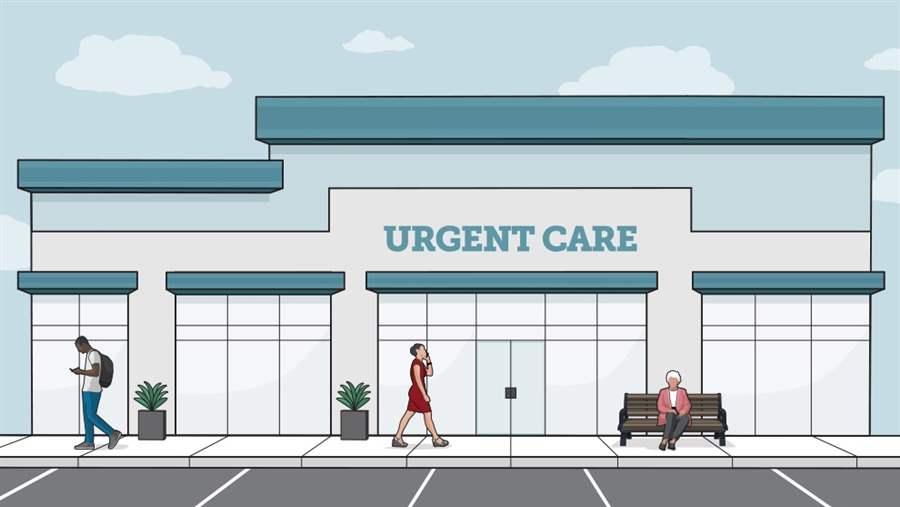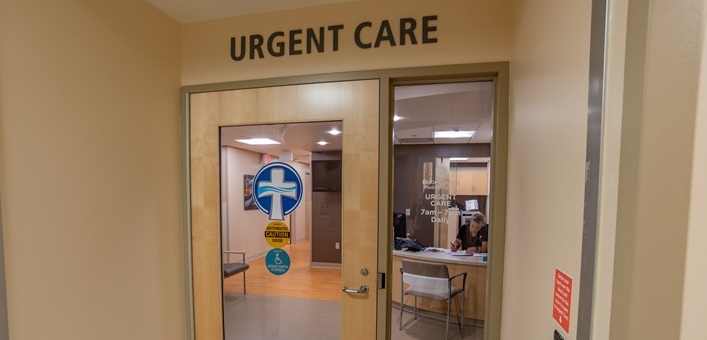Typical Conditions Treated at Urgent Care Clinics You Should Know
Typical Conditions Treated at Urgent Care Clinics You Should Know
Blog Article
Comprehending the Significance of Urgent Treatment Providers for Non-Life-Threatening Medical Issues
The significance of urgent care services for non-life-threatening clinical issues can not be overstated, particularly in today's healthcare landscape. These facilities offer a vital choice for people looking for timely interest for conditions that need prompt treatment however do not require a browse through to the emergency clinic. By understanding the benefits of immediate treatment, such as reduced delay times and price effectiveness, one can better appreciate their role in client wellness administration. Yet, the nuances of how to browse these solutions effectively continue to be to be discovered, increasing questions concerning their optimum utilization.
What Is Urgent Treatment?
Immediate treatment describes a group of clinical services designed to attend to non-life-threatening conditions that call for prompt attention however do not warrant a browse through to the emergency clinic. These centers offer a bridge between health care and emergency services, offering obtainable medical care alternatives for people experiencing severe medical problems, such as minor fractures, sprains, infections, or serious ailments that emerge all of a sudden.

The scope of solutions offered by immediate treatment centers can vary but generally includes treatment for typical disorders like colds, flu, and allergies, along with small injuries (urgent care). Furthermore, numerous urgent treatment facilities provide preventative services, such as inoculations and physical tests, to address wider health demands. By offering a hassle-free option for urgent medical issues, these facilities play an important function in the healthcare continuum, ensuring that patients obtain ideal treatment when they require it most
Advantages of Urgent Care Services
Lots of people find that using immediate care services provides considerable advantages over standard emergency clinic visits or awaiting a medical care appointment. One main advantage is the reduced delay times. Immediate care facilities typically have much shorter delay periods, enabling clients to receive timely clinical attention when they require it most. This expedited treatment is particularly handy for non-life-threatening problems that call for prompt intervention.
Another benefit is the extended hours of operation. Numerous urgent care facilities are open evenings and weekend breaks, fitting individuals that might not have the ability to see their medical care medical professional during regular office hours. This versatility makes it less complicated for patients to access care at their comfort.
Additionally, urgent treatment services typically supply an affordable choice to emergency situation areas. When seeking treatment for small disorders at urgent care facilities rather than health center emergency divisions., patients regularly encounter lower co-pays and general expenses - urgent care.
Lastly, immediate treatment facilities are geared up to manage a variety of non-life-threatening issues, supplying a broad variety of services under one roofing system. This extensive approach not only improves the treatment process but also enhances person contentment by supplying reliable and punctual treatment.
Common Problems Dealt With
What kinds of non-life-threatening conditions can individuals expect to receive treatment for at immediate care centers? Immediate care centers are outfitted to deal with a large range of usual medical problems that require prompt interest but do not position an instant danger to life. These facilities frequently treat conditions such as small cracks, sprains, and stress, giving essential treatment for injuries that happen during daily activities or sporting activities.
Additionally, people regularly look for therapy for respiratory infections, including colds, influenza, and bronchitis, where timely treatment can relieve signs and stop complications. Skin problem such as breakouts, insect attacks, and small burns are also frequently addressed, as prompt care can alleviate discomfort and decrease the risk of infection.

Contrasting Urgent Treatment and Emergency Situation Rooms

One considerable difference lies in wait times; immediate treatment facilities typically have shorter wait times compared to emergency clinic, which can be congested with even more important cases. This effectiveness allows patients to obtain timely treatment for Our site their ailments.
From an economic perspective, urgent treatment gos to have a tendency to be less costly than emergency room visits. Insurance policy copays and out-of-pocket expenditures are commonly lower at urgent care facilities, making them an extra cost-effective choice for non-emergency scenarios.
How to Choose an Urgent Treatment Center
Choosing the right immediate treatment center can considerably improve the top quality of treatment received throughout a non-life-threatening medical problem. When picking an urgent care facility, numerous vital factors should be taken into consideration.
First, assess the center's accreditation and licensing. Look for centers that are recognized by identified companies, as this indicates adherence to high quality standards. Next, review the variety of services provided. Some urgent care facilities specialize in certain areas, while others provide thorough care for different medical problems.
Furthermore, take into consideration the location and hours of procedure. An easily located facility with prolonged hours can be essential for timely care. It's also suggested to inspect the facility's browse around these guys wait times and patient testimonials, which can supply understandings right into the total client experience.
Conclusion
In final thought, immediate care services play an essential function in addressing non-life-threatening medical concerns successfully. Ultimately, understanding the significance of immediate treatment facilities contributes to enhanced health care management and client contentment.
Many individuals discover that utilizing immediate treatment solutions gives considerable benefits over standard emergency situation space sees or waiting for a primary care consultation. Several urgent treatment facilities are open evenings and weekends, accommodating individuals that might not be able to see their primary treatment physician throughout normal office hours. Urgent care facilities are developed to address non-life-threatening conditions, such as minor cracks, infections, and illnesses, providing a hassle-free alternative to emergency situation rooms for those in demand of instant care. Some immediate treatment facilities specialize in specific locations, while others provide thorough treatment for various clinical problems.
Report this page